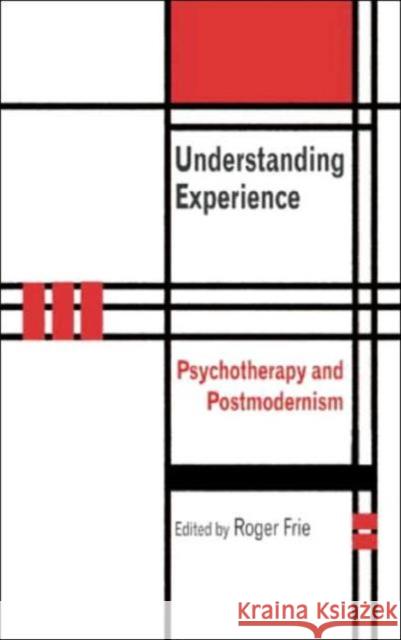Understanding Experience: Psychotherapy and Postmodernism » książka
Understanding Experience: Psychotherapy and Postmodernism
ISBN-13: 9781583912997 / Angielski / Twarda / 2003 / 246 str.
Understanding Experience: Psychotherapy and Postmodernism is a collection of innovative interdisciplinary essays that explore the way we experience and interact with each other and the world around us. The authors address the postmodern debate in psychotherapy and psychoanalysis through clinical and theoretical discussion and offer a view of the person that is unique and relevant today.
The clinical work of Binswanger, Boss, Fromm, Fromm-Reichmann, Laing, and Lacan is considered alongside the theories of Buber, Heidegger, Husserl, Merleau-Ponty, Sartre and others. Combining clinical data from psychotherapy and psychoanalysis with insights from European philosophy, this book seeks to fill a major gap in the debate over postmodernism and bridges the paradigmatic divide between the behavioural sciences and the human sciences.
It will be of great interest to clinicians and students of psychotherapy and psychoanalysis who wish to come to terms with postmodernism, as well as those interested in the interaction of psychoanalysis, philosophy and social theory.
Understanding Experience: Psychotherapy and Postmodernism is a collection of innovative interdisciplinary essays that explore the way we experience and interact with each other and the world around us. The authors address the postmodern debate in psychotherapy and psychoanalysis through clinical and theoretical discussion and offer a view of the person that is unique and relevant today.
The clinical work of Binswanger, Boss, Fromm, Fromm-Reichmann, Laing, and Lacan is considered alongside the theories of Buber, Heidegger, Husserl, Merleau-Ponty, Sartre and others. Combining clinical data from psychotherapy and psychoanalysis with insights from European philosophy, this book seeks to fill a major gap in the debate over postmodernism and bridges the paradigmatic divide between the behavioural sciences and the human sciences.
It will be of great interest to clinicians and students of psychotherapy and psychoanalysis who wish to come to terms with postmodernism, as well as those interested in the interaction of psychoanalysis, philosophy and social theory.











